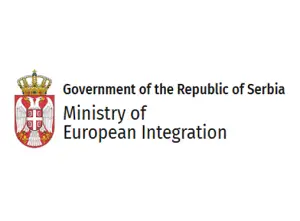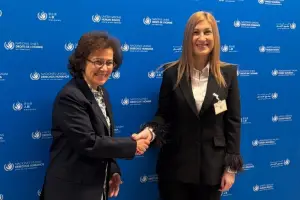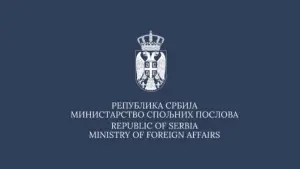- Serbia
Get to know Serbia
- Citizens
Culture and science
Health services
Pension and disability insurance
- Business
Employment
Economy
- Media
- Government
- Contact
Keep in touch
Contact form
Back
Keepin touch
Whether you have a question, comment, suggestion or any problem in the purview of the government, send us your message and we will try to respond as soon as possible. If your problem is not in our purview, we will forward your message to the relevant institution.
Q:
A:
Declaration on responsibility and partnership in fighting HIV/AIDS adopted in Bremen
Belgrade,
21 March 2007
The Serbian Ministry of Health stated at the conference themed “Responsibility and Partnership – Together Against HIV/AIDS”, organised by the German government as the EU presiding country in the period January–June 2007, the Declaration on responsibility and partnership in fighting HIV/AIDS was adopted.
The statement adds that the conference took place in Bremen on March 12 and 13 under the auspices of the German Federal Ministry of Health and in the presence of top German government officials – Prime Minister Angela Merkel, Minister of Health Ulla Schmidt, Minister of Economic Cooperation and Development Heidemarie Wieczorek-Zeul and Minister of Education and Scientific Development Annette Schavan.
Serbian representatives at the conference were President of the Serbian Committee for Fighting HIV/AIDS Tomica Milosavljevic, Senior Advisor at the Serbian health ministry Ivana Misic, member of the Committee for Fighting HIV/AIDS Dragan Ilic, representative of the NGO “Positive” Jarmila Bujak-Stanko and coordinator of the health ministry’s project unit for HIV/AIDS Katarina Mitic.
This was an opportunity for an exchange of topical information regarding the HIV/AIDS epidemic and experiences in prevention and control of this disease.
German Minister of Health Ulla Schmidt said that signatories of the Declaration agreed on one thing – that fight against HIV/AIDS can be won only with the help of strong political leadership, that this is a topic that must be discussed at the highest political levels and that it is one of the priorities of all European governments.
Schmidt also said that when it comes to this epidemic, we are forced to view this matter from a position beyond our own state borders, beyond national borders, as well as beyond the European Union and Europe itself.
According to Schmidt, the control of HIV/AIDS does not require the support of politicians alone, but also the support of the society as a whole.
Here in Bremen, together with over one hundred NGOs, we will do all we can to make prevention and treatment of this disease available throughout Europe to all who are infected and help them live freely without social stigma and discrimination, said Ulla Schmidt.
Having in mind the global threat of HIV/AIDS infection (it is estimated that the number of newly infected at an annual level will be five million people), the declaration obliges the exchange and implementation of best practices in preventing HIV/AIDS as well as other sexually transmitted diseases, reducing mother-to-child infections, sexual education, etc.
The declaration also calls on representatives of the civil sector, the media and pharmaceuticals industry to get involved in educating and raising awareness of people as well as making access to medical treatment easier.
Serbian representatives at the conference were President of the Serbian Committee for Fighting HIV/AIDS Tomica Milosavljevic, Senior Advisor at the Serbian health ministry Ivana Misic, member of the Committee for Fighting HIV/AIDS Dragan Ilic, representative of the NGO “Positive” Jarmila Bujak-Stanko and coordinator of the health ministry’s project unit for HIV/AIDS Katarina Mitic.
This was an opportunity for an exchange of topical information regarding the HIV/AIDS epidemic and experiences in prevention and control of this disease.
German Minister of Health Ulla Schmidt said that signatories of the Declaration agreed on one thing – that fight against HIV/AIDS can be won only with the help of strong political leadership, that this is a topic that must be discussed at the highest political levels and that it is one of the priorities of all European governments.
Schmidt also said that when it comes to this epidemic, we are forced to view this matter from a position beyond our own state borders, beyond national borders, as well as beyond the European Union and Europe itself.
According to Schmidt, the control of HIV/AIDS does not require the support of politicians alone, but also the support of the society as a whole.
Here in Bremen, together with over one hundred NGOs, we will do all we can to make prevention and treatment of this disease available throughout Europe to all who are infected and help them live freely without social stigma and discrimination, said Ulla Schmidt.
Having in mind the global threat of HIV/AIDS infection (it is estimated that the number of newly infected at an annual level will be five million people), the declaration obliges the exchange and implementation of best practices in preventing HIV/AIDS as well as other sexually transmitted diseases, reducing mother-to-child infections, sexual education, etc.
The declaration also calls on representatives of the civil sector, the media and pharmaceuticals industry to get involved in educating and raising awareness of people as well as making access to medical treatment easier.
-
 Belgrade, 4 March 2026
Belgrade, 4 March 2026Citizens evacuated from Israel safely arrive in Belgrade
-
 Belgrade, 2 March 2026
Belgrade, 2 March 2026Full support for Serbian citizens in war-affected Middle East region
-
 Belgrade/Tokyo, 27 February 2026
Belgrade/Tokyo, 27 February 2026Potential for further development of Serbia-Japan cooperation
-
 Belgrade, 26 February 2026
Belgrade, 26 February 2026Accelerating work on adoption, implementation of EU accession reforms
-
 Belgrade, 25 February 2026
Belgrade, 25 February 2026Consultations with EC on addressing domestic dairy market challenges
-
 Belgrade/Geneva, 25 February 2026
Belgrade/Geneva, 25 February 2026Serbia firmly committed to continuous strengthening, promotion of human rights
-
 Belgrade, 24 February 2026
Belgrade, 24 February 2026Strengthening cooperation with Italy in fight against organised crime
-
 Belgrade/Washington, 24 February 2026
Belgrade/Washington, 24 February 2026Deepening strategic cooperation between Serbia, US in field of energy
-
 Belgrade, 23 February 2026
Belgrade, 23 February 2026Consultations with EC on milk, dairy products on 25 February
-
 Belgrade, 21 February 2026
Belgrade, 21 February 2026Serbian citizens advised to leave Iran as soon as possible

